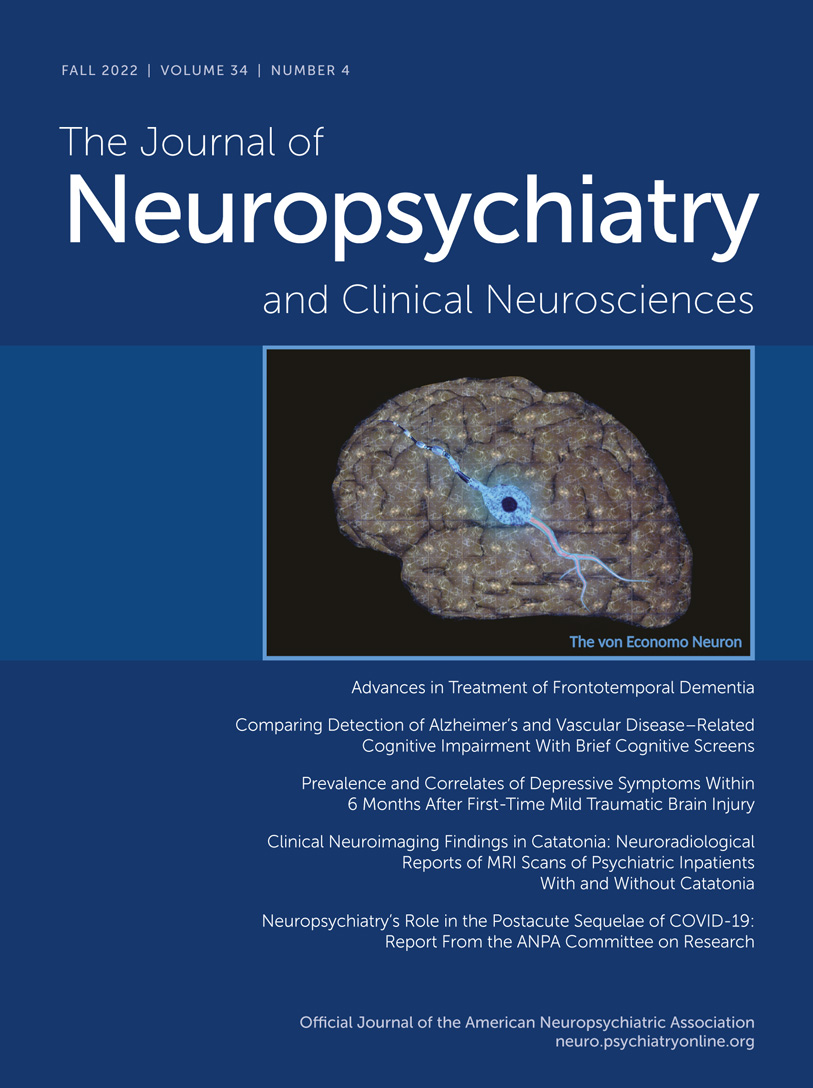APOE ε4 Carrier Status as Mediator of Effects of Psychotropic Drugs on Clinical Changes in Patients With Alzheimer’s Disease
Abstract
Objective:
Neuropsychiatric syndromes have been associated with memory dysfunction and risk of and earlier onset of dementia, but how psychotropic drugs affect clinical changes in Alzheimer’s disease is not entirely clear. This study aimed to assess the prospective effects of psychotropic drugs on cognitive and functional changes in Alzheimer’s disease according to APOE ε4 carrier status.
Methods:
The study included consecutive outpatients with late-onset Alzheimer’s disease (N=193) and examined score variations at 1 year on the following tests: Clinical Dementia Rating sum of boxes, Mini-Mental State Examination, Severe Mini-Mental State Examination (SMMSE), Brazilian version of the Zarit Caregiver Burden Interview, Index of Independence in Activities of Daily Living, and Lawton’s Instrumental Activities of Daily Living Scale. Analyses of score variations accounted for the use of psychotropic drugs or the number of different medications in use, as well as APOE ε4 carrier status, with significance at p<0.05.
Results:
For APOE ε4 noncarriers (N=90), cholinesterase inhibitors were beneficial regarding caregiver burden (p=0.030) and basic functionality (p=0.046), memantine was harmful regarding SMMSE score changes (p=0.032), second-generation antipsychotics had nonsignificant harmful effects on SMMSE score changes (p=0.070), and antiepileptic therapy (p=0.001) and the number of different medications in use (p=0.006) were harmful in terms of basic functionality. APOE ε4 carriers (N=103) did not experience any effects of isolated psychotropic drugs on clinical changes, including antidepressants.
Conclusions:
Results support the harmful prospective effects of second-generation antipsychotics and antiepileptic drugs on cognitive and functional changes in Alzheimer’s disease, particularly for APOE ε4 noncarriers, whereas antidepressants may be safer options for behavioral enhancement.



